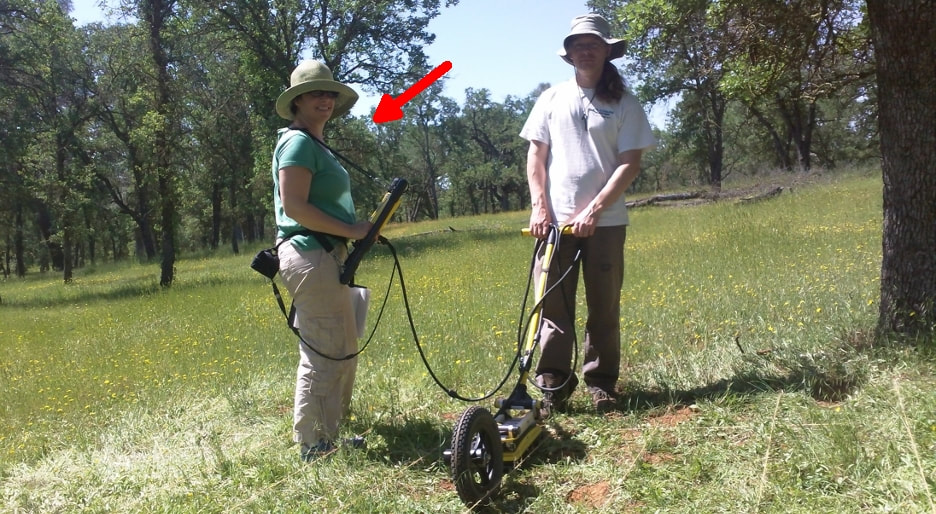Because water is related to so many processes and functions on Earth, and because vegetation are living organisms, their combination – ecohydrology, creates a great deal of complexity, diversity, temporal and spatial variability, connectivity, feedbacks and inter-linkages, and these are concepts I tremendously enjoy thinking about. To understand these complex environments, working on ecohydrology requires us to develop system thinking tools. This perspective almost makes ecohydrology (at least at the field scale) a social science in the sense that while we are searching for physical and mathematical rules, they come with large standard errors. I envision ecosystems to be as complex as people and societies, hence the paper I selected as one of my favorites.
What are your undergraduate and graduate degrees in?
I have a B.Sc. in Geology and an M.A. in Physical Geography, both from the Hebrew University in Jerusalem. In my master’s I worked on rainfall-runoff relationships. In my doctorate I worked on ecohydrology of a dryland forest and received a Ph.D. in Environmental Science from the Weizmann Institute for Science. I came to the US for my postdoc at the lab of Dennis Baldocchi in UC Berkeley.
How did you arrive at working in/thinking about ecohydrology?
I started my Ph.D. in Environmental Science at the lab of Dan Yakir. At that time, all new students worked at the Yatir dryland afforestation fluxnet site. I needed to choose a research topic, and to me, the most interesting questions was – how does this forest survive with 270 mm rainfall annually? Overtime, the forest did reveal some of its secrets. For example, while the surrounding barren dryland produces flash floods, the trees alter the surface and soils so much that there is no runoff leaving the forest even during extreme rain events. Actually, the larger the storm, the better for trees, because what I saw was that during large events infiltration was deep enough to allow retention of soil moisture throughout the dry season. Most interesting was to measure how soil evaporation was suppressed beneath the canopy, further reducing water loss. It still strikes me to observe how trees alter their microclimate to their benefit, and ours.
Although I had excellent scientists around me, none of them focused on ecohydrology. Therefore to study this topic and develop my own ideas, I read a lot of peer-reviewed papers. Working on semi-arid climates, I developed my ‘school of thought’, a group of ecohydrologists that were my mentors without even knowing who they were: Ignacio Rodriguez-Iturbe, Jim Shuttleworth, Brad Wilcox Paolo d'odorico, Shirley Kurc Papuga, Russ Scott, Travis Huxman, Susan Schwinning, Brent Newman, David Breshears, and Enrico Yepez, and others. Thank you all, and it was an honor to meet and collaborate with some of you later on in my career.
What do you see as an important emerging area of ecohydrology?
We are facing pivotal times, and climate change that we studied almost as a theoretical field some 30 years ago is becoming a worrisome reality. It is critical that we study mechanisms that impact water availability and water use that will help development solutions to better manage this crisis. I would like to see more of us working on agriculture-related research, as agriculture is by far the sector using the most freshwater. In developing regions of the world, water scarcity both for drinking and for food is a real concern. And to deal with rising sea level and increase in floods we need more nature-based solutions that apply a nested, holistic approach closely related to ecohydrology.
Do you have a favorite ecohydrology paper? Describe/explain.
River Morphology as an Analog to Darwin’s Theory of Natural Selection /Luna Leopold (1994).
In this paper Leopold compared the members of a species to rivers. Rivers, like individuals, are not identical to each other but belong to a type. Leopold shows how rivers, alike species individuals, are a function of their history, and evolve overtime.
What do you do for fun (apart from ecohydrology)?
It probably doesn’t come as a big surprise that I like to spend time in nature – hiking, camping, sailing, biking. I think many of us ended up as ecohydrologists because of our affiliation to nature and the outdoors. I started playing the piano several years ago and getting better at it. I spend a lot of time with family and friends, I read books, and I love to travel. I also try to be active with local environmental organizations, but I wouldn’t call this fun, it’s more of a struggle. Working with legislators and governmental agencies is hard.

 RSS Feed
RSS Feed